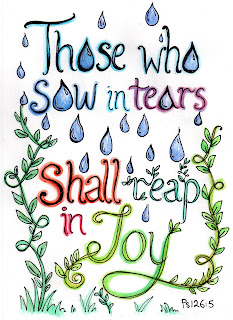"Blessed are the meek, for they shall inherit the earth." -Matthew 5:5
 | |
| Gentleness, by Irena Sophia |
Yet, according to Vincent's Word studies, that's exactly what Jesus meant---mild, gentle, "it was applied to inanimate things, as light, wind, sound, sickness. It was used of a horse." The first light of early morning or late afternoon, a soft breeze, a whisper... This is what it may look like in nature.
Jesus uses it also to describe himself:
Take my yoke upon you, and learn from me, for I am gentle and lowly in heart, and you will find rest for your souls. For my yoke is easy, and my burden is light." -Matthew 11:29
 |
| Take My Yoke Upon You, Larry Chandler, 2003 |
Do I think of Christ as gentle? He allowed the masses to press in upon him with their many demands, yet he fed and healed them anyway. He forgave and loved those who repeatedly failed him. He allowed himself to be arrested, tried unfairly, giving us his very life. "Take my yoke and learn from me,"---do I want to learn this meekness of His? If I am honest with myself, no. It sounds painful.
The Biblical Illustrator offers up this antecode: "A missionary in Jamaica was once questioning the little black boys on the meaning of this text, and asked, “Who are the meek?” A boy answered, “Those who give soft answers to rough questions.”"
Do I give soft answers? Not typically. And in this season of my life particularly, the answers seem to be growing more rough than soft. I'm failing.
Yet we are told that if we learn from him that we will find rest for our souls. Even more, we will inherit the earth. An inheritance and rest. It seems elusive, impossible--certainly so apart from Him. Even with Him, it demands of me a type of submission that I find threatening. It puts him in charge and requires me to follow.



